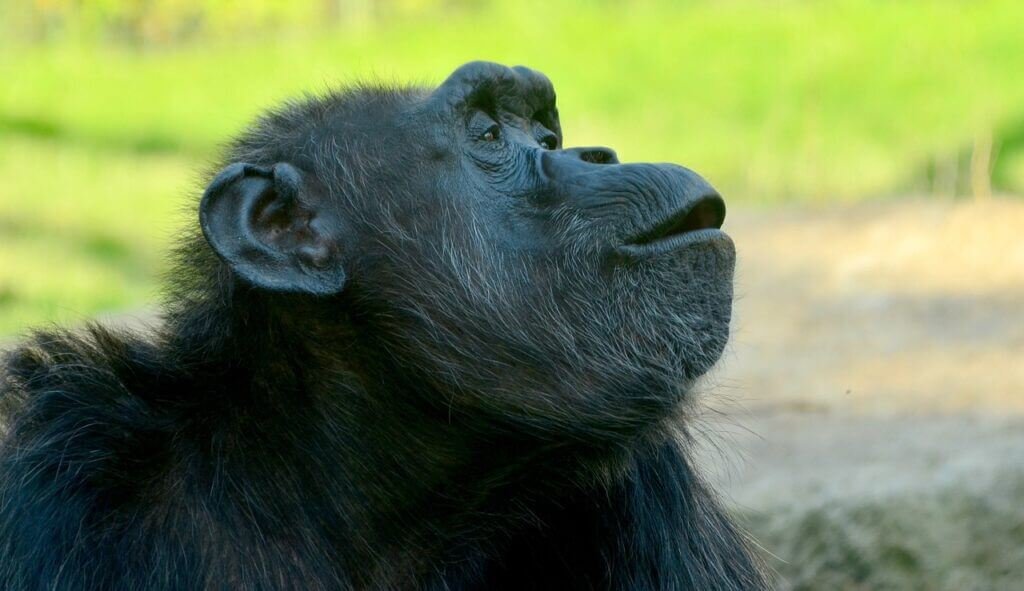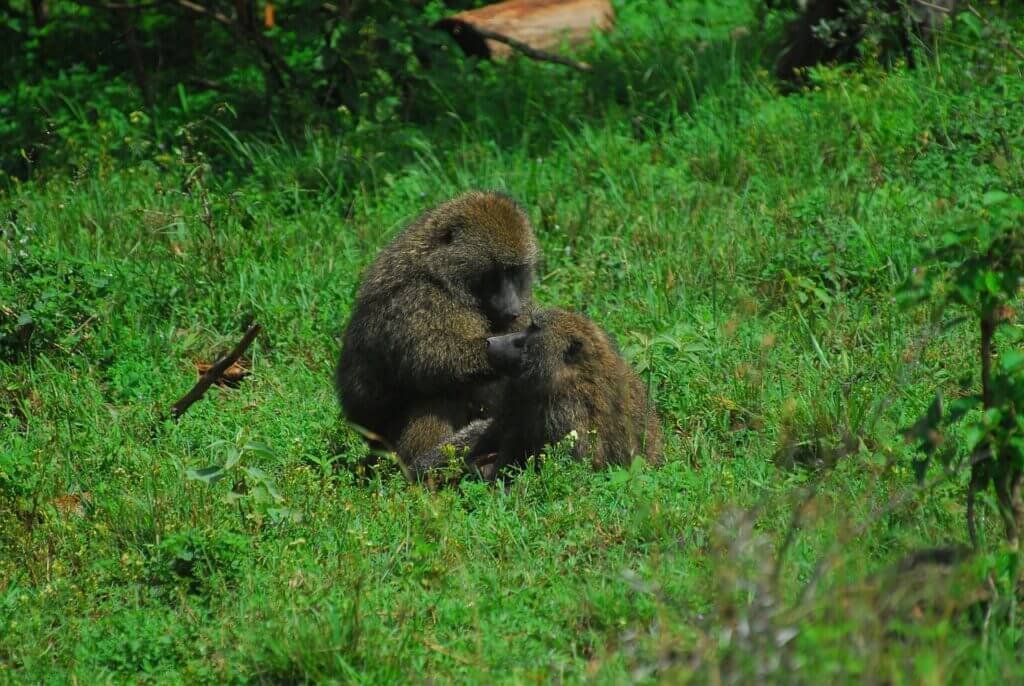So you’ve decided to bring a pet monkey into your life, huh? That’s an exciting adventure! However, as with any pet, there may come a time when your furry friend exhibits aggressive or territorial behavior. Don’t panic just yet! In this article, we’ll guide you through some helpful tips and strategies to handle these challenging situations. From understanding the root cause of their behavior to implementing effective training techniques, you’ll be equipped with the knowledge and tools necessary to maintain a harmonious relationship with your not-so-average companion. Let’s get started and ensure the well-being of both you and your mischievous monkey!

Understanding Aggressive or Territorial Behavior
Aggressive or territorial behavior in pet monkeys can be challenging to handle, but with the right knowledge and approach, it is possible to address and manage these behaviors effectively. Understanding the types and causes of such behavior is the first step toward creating a harmonious relationship with your monkey.
Types of Aggressive or Territorial Behavior
Different types of aggressive or territorial behavior can manifest in pet monkeys. These behaviors can vary from displays of dominance, such as vocalization, gestures, and posturing, to more severe actions like biting, lunging, or chasing. It is essential to recognize the signs and understand the motivation behind these behaviors in order to respond appropriately.
Causes of Aggressive or Territorial Behavior
Several factors can contribute to aggressive or territorial behavior in pet monkeys. Inadequate socialization during their early development stages can lead to fear or mistrust towards humans or other animals. Other contributing factors may include a lack of mental and physical stimulation, an unfamiliar or stressful environment, or past traumatic experiences. Identifying the underlying causes can help in developing a comprehensive plan to address these behaviors.
Preventing Aggressive or Territorial Behavior
Prevention is key when it comes to aggressive or territorial behavior in pet monkeys. By implementing certain strategies, you can create an environment that promotes positive behavior and minimizes the likelihood of aggression.
Proper Socialization
Proper socialization plays a vital role in preventing aggressive or territorial behavior in pet monkeys. Introducing your monkey to a variety of people, animals, and environments from an early age can help them develop positive relationships and reduce the likelihood of fear or aggression. Regular socialization exercises should be conducted in a controlled and supervised manner to ensure safety for all involved.
Establishing Boundaries and Rules
Establishing clear boundaries and rules is crucial for preventing aggressive or territorial behavior. Consistency is key, as monkeys thrive on routine and structure. Set clear expectations for behavior and reinforce them consistently, using positive reinforcement techniques. By providing clear guidelines, your monkey will have a better understanding of what is expected from them, reducing the likelihood of aggression.
Providing Mental and Physical Stimulation
Monkeys are intelligent animals that require mental and physical stimulation to maintain their overall well-being. Boredom or frustration can contribute to aggressive behaviors, so it is essential to provide them with ample opportunities for play, exercise, and mental enrichment. Interactive toys, puzzles, and regular training sessions can help keep your pet monkey stimulated and prevent the development of territorial or aggressive tendencies.

Recognizing Aggressive or Territorial Behavior
Recognizing the signs of aggressive or territorial behavior is crucial to address these issues promptly and effectively. By understanding and identifying the warning signs, you can intervene early and prevent escalation.
Signs of Aggression or Territoriality
Some common signs of aggressive or territorial behavior in pet monkeys include vocalization (such as screaming or growling), displaying threatening body language (such as raised fur or an arched back), biting or scratching, aggressive posturing (such as lunging or charging), and territorial marking. Recognizing these indicators is essential to prevent potential harm to yourself, other pets, or visitors.
Distinguishing between Fear and Aggression
It is important to note that aggressive behavior is often rooted in fear or anxiety. Understanding the difference between fear-based aggression and true aggression can help tailor your response accordingly. Fear-based aggression is often characterized by defensive behaviors, while true aggression may stem from dominance or territoriality. Careful observation and consultation with professionals can aid in accurately determining the root cause of the behavior.
Handling Aggressive or Territorial Behavior
When faced with aggressive or territorial behavior in your pet monkey, it is crucial to handle the situation calmly, assertively, and responsibly. Your actions will play a significant role in diffusing tense situations and establishing a healthier dynamic with your pet.
Maintaining Calm and Authority
It is essential to maintain a calm and confident demeanor when dealing with aggressive or territorial behavior. Monkeys are perceptive animals, and they can sense fear or anxiety, which may exacerbate the situation. By staying calm and assertive, you can help your monkey feel more secure and reduce the likelihood of further aggression.
Avoiding Punishment or Harsh Actions
Punishment or harsh actions towards an aggressive or territorial monkey are not recommended and can worsen the behavior. Physical punishment or yelling may increase fear and stress, leading to more aggressive responses in the future. Instead, focus on positive reinforcement and redirection techniques to encourage desired behavior and discourage aggression.
Redirecting Aggression
Redirecting your monkey’s aggressive behavior towards more appropriate outlets can be an effective strategy. Providing alternative activities, such as interactive toys or engaging in obedience training, can redirect their energy and attention away from aggression. Offering positive reinforcement when they display desired behavior can further reinforce this redirection.
Seeking Professional Help
In some cases, seeking professional help may be necessary to address aggressive or territorial behavior in your pet monkey. Consulting a veterinarian or an animal behaviorist with experience in primates can provide valuable insights and guidance tailored to your specific situation. They can assess the underlying causes, offer behavior modification techniques, and provide ongoing support throughout the process.

Training and Conditioning Techniques
Implementing training and conditioning techniques can significantly contribute to managing aggressive or territorial behavior in pet monkeys. By utilizing positive reinforcement and scientific-based methods, you can shape their behavior and foster a healthier dynamic.
Positive Reinforcement
Positive reinforcement is a powerful tool for training monkeys and can be highly effective in managing aggressive or territorial behavior. By rewarding desired behavior with treats, praise, or affection, you can reinforce positive actions and encourage your monkey to repeat them. Patience, consistency, and the use of rewards that hold value for your pet are crucial in utilizing positive reinforcement effectively.
Desensitization
Desensitization involves exposing your pet monkey to stimuli that may trigger aggressive or territorial behavior in a controlled and gradual manner. By gradually increasing their exposure to these triggers while ensuring a positive and stress-free experience, you can help your monkey become more comfortable and less reactive over time.
Counterconditioning
Counterconditioning works by associating positive experiences with situations or stimuli that might otherwise elicit aggressive or territorial behavior. By introducing positive associations, such as treats or playtime, during encounters with triggers, you can help your monkey form new, positive associations and reduce their negative responses.
Clicker Training
Clicker training is a popular and effective method for training animals, including monkeys. By using a clicker as a marker for desired behavior and following it immediately with a reward, you can create a strong association between the click and the reward. Clicker training can aid in improving compliance, focus, and reducing aggressive or territorial behavior through positive reinforcement.
Physical and Environmental Adjustments
Making appropriate physical and environmental adjustments can significantly contribute to managing aggressive or territorial behavior in pet monkeys. By creating an environment that caters to their needs and reduces stress, you can help promote more balanced and harmonious behavior.
Providing Sufficient Exercise
Pet monkeys need regular exercise to burn off excess energy and stimulate their minds. Insufficient exercise can lead to boredom and frustration, which in turn may result in aggressive or territorial behavior. Engage in daily play sessions, provide climbing structures, or take your monkey for supervised walks to ensure they receive adequate physical activity.
Creating a Safe and Stimulating Environment
Creating a safe and stimulating environment is essential to preventing aggression in pet monkeys. Ensure that your monkey’s living space is secure to prevent escape or potential encounters with other animals or people. Additionally, provide a variety of toys, puzzles, and enrichment activities to keep them mentally engaged and challenged.
Using Enrichment Tools
Enrichment tools can play a crucial role in managing aggressive or territorial behavior in pet monkeys. Interactive toys, food puzzles, and environmental enrichment devices can provide mental stimulation and help redirect their focus away from potential triggers. Experiment with different enrichment options to find what works best for your monkey.
Seeking Professional Help
In some cases, despite your best efforts, managing aggressive or territorial behavior in a pet monkey may require the expertise of professionals. Consulting a veterinarian or an animal behaviorist who specializes in primates can provide you with valuable insights, guidance, and tailored interventions to address your specific situation.
Consulting a Veterinarian or Animal Behaviorist
Veterinarians and animal behaviorists with expertise in primates can offer valuable support and assistance to pet monkey owners. They can assess the underlying causes of aggressive or territorial behavior, recommend behavior modification techniques, and guide you through the process of managing these behaviors effectively. Regular check-ups with a veterinarian can also help ensure your monkey’s overall health and well-being.
Joining Support Groups or Online Forums
Joining support groups or online forums for pet monkey owners can provide a supportive community where you can exchange experiences, seek advice, and receive emotional support. Connecting with others who have faced similar challenges can offer you a sense of reassurance and guidance as you navigate the complexities of managing aggression or territoriality in your pet monkey.
Legal and Ethical Considerations
Owning a pet monkey comes with legal and ethical considerations that are important to be aware of. It is crucial to familiarize yourself with local laws and regulations regarding monkey ownership to ensure compliance. Furthermore, consider the ethical implications of owning a primate, including their specialized needs, potential risks, and the responsibility of providing lifelong care.
Checking Local Laws and Regulations
Monkey ownership is regulated in many jurisdictions, and it is important to understand and adhere to the applicable laws and regulations. Some areas may have strict bans on private primate ownership, while others may require specific permits or licenses. Familiarize yourself with the legality of monkey ownership in your area to avoid potential legal consequences and ensure the well-being of both your monkey and yourself.
Considering Ethical Implications of Ownership
Owning a pet monkey carries ethical responsibilities that require careful consideration. Primates have complex social, physical, and emotional needs that may be challenging to meet in a domestic setting. Understanding the commitment required to provide proper care, socialization, and enrichment is essential to ensure the welfare of your monkey.
Alternative Options to Ownership
For individuals who are interested in primates but may not be suited for pet monkey ownership, there are alternative options that allow you to engage with these incredible animals while supporting their conservation and welfare.
Fostering or Volunteering at Primate Sanctuaries
Primate sanctuaries provide a loving and safe environment for rescued monkeys and other primates. By fostering or volunteering at these sanctuaries, you can contribute to their well-being, offer companionship, and assist in their rehabilitation. This allows you to engage with monkeys in a controlled and educational setting while supporting their long-term care.
Supporting Conservation Efforts
Supporting conservation efforts and organizations dedicated to primate welfare can make a significant impact on the preservation of these remarkable animals. Donate to reputable charities, participate in fundraising events, or educate others about the importance of primate conservation. By doing so, you can contribute to protecting primate populations in their natural habitats and ensure a sustainable future for them.
Conclusion
Handling aggressive or territorial behavior in a pet monkey requires understanding, patience, and a multifaceted approach. By taking into account the individual needs and characteristics of your monkey, as well as implementing proper training and environmental adjustments, it is possible to manage these behaviors effectively. Seeking professional help when necessary and considering alternative options can provide additional support and ensure the well-being of both you and your pet monkey. Remember, with the right knowledge and approach, you can build a harmonious and fulfilling relationship with your monkey.


